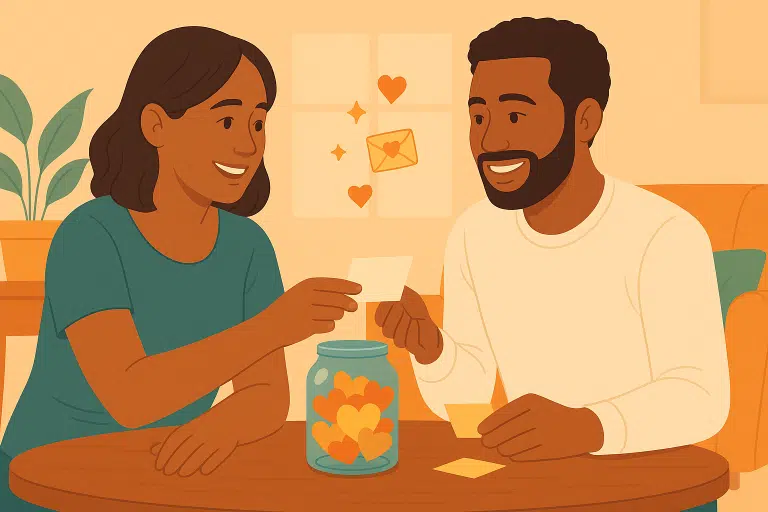If you use social media or have tried to understand your relationship better, chances are you have heard about or tried to discover your love language.
Emotionally Focused Couples Therapy
Emotionally Focused Couples Therapy (EFCT), developed by Sue Johnson, helps couples strengthen their relationship by understanding and communicating their feelings better, break out of negative communication cycles, and build stronger bonds that deepen their connection. EFCT gets to the heart of the matter in a relationship.
EFCT seeks to go beyond the surface-level issues, and it emphasizes that relationships are driven by our desire for emotional bonds and emotional safety. It is based on the attachment style, that is, the natural/innate needs to feel safe, loved and valued in relationships. EFCT identifies the following:
- When these attachment needs are unmet, partners feel hurt, leading to negative communication cycles of disconnect and conflict.
- When the emotional bonds in relationships are threatened the partners may withdraw, shutdown or fight.
EFCT allows the couples to explore these fears and the longing for connection, which can be very vulnerable and unfamiliar to many. However, once vulnerable emotions are accessed, new communication patterns that foster connection rather than conflict can be created. In short EFCT helps improve communication, deepen connections, create emotional safety and help get to the root of the conflicts, hence facilitating resolution.
The Five Love Languages
The 5 love languages, developed by Dr. Gary Chapman, suggest that everyone has a primary love language that resonates deeply with them. Understanding your partner’s love language allows you to express your love in a way that most resonates with them, leading to a stronger and more fulfilling relationship.
The five distinct love languages are:
- Words of Affirmation: expressing affection through thoughtful and kind words.
- Acts of service: Showing love by doing things that make life easier and more enjoyable for your partner.
- Receiving gifts: Giving thoughtful presents and gestures.
- Quality time: Valuing full, undivided attention and shared experiences/moments.
- Physical Touch: valuing closeness and physical affection – sexual and nonsexual.
Misconception and Truths of the Love Languages.
- One’s love language remains unchanged: While most people tend to have one primary love language, they may also value other love languages. This could be driven by the stage they are in life, new or old stressors forcing the emphasis to be on a different love language. Like a new mother valuing acts of service during the postpartum period. There is a belief that someone has one love language, and it stays unchanged.
- Receiving gifts implies materialism: Receiving gifts as a love language is often interpreted to be rooted in materialism. However, it is not the price of the gift but the thought behind it that captures the love language.
- Everyone shares the same love language: This is a false assumption.
- Love language as a checklist: Love languages are NOT a checklist for measuring the health of relationships. Expressing a love language is only meaningful when accompanied by emotional sincerity and genuine connection. Without these, the act itself may lack the depth needed to truly nurture the relationship.
- Your love language is how you should express love: Love languages are about how we receive love, not necessarily how we show it. Love becomes more meaningful when it’s expressed in the way your partner feels most valued, rather than based on your own preferences.
Love languages enhance communication and deepen emotional connection because they promote empathy, reduce misunderstandings, and allow the couple to stay attuned to one another.
Connecting EFCT and the Five Love Languages
Emotional Safety:
EFCT fosters emotional safety through evaluating emotional needs and addressing the attachment needs between partners. The Five Love Languages offer tangible ways to cater to these emotional needs. When a partner expresses that they feel insignificant and alone (emotional need for connection), the other partner can address this need by using their partner’s love language (e.g., quality time).
Active and Empathetic Listening:
EFCT encourages using reflective listening, which is listening to your partner’s feelings and then reflecting back what you heard to them to ensure they feel heard and validated. This builds on emotional safety, encouraging partners to open up and address deeper emotional needs, therefore, building stronger emotional bonds. Once these needs are voiced then the listening partner can “speak” the partner’s love language. For example, if someone values quality time, engaging in an active empathetic conversation without distractions can help strengthen security and deepen connection.
Conflict resolution:
In EFCT, effective conflict resolution is a crucial step in re-building and reinforcing the relationship. By focusing on deep emotions and attachment needs, and removing blame, couples can address the root cause of the conflict. This fosters empathy, making partners feel their vulnerabilities are acknowledged and supported. The Five Love languages be included in this process by speaking the partner’s primary love language during or after conflict to help them soothe emotions. For example, a person whose love language is words of affirmation may value hearing reassuring words, making them feel valued.
Identifying Negative Communication Cycle:
EFCT teaches couples to be aware of their reaction partners during conflict, such as withdrawing-pursuing or blaming-defensiveness. Once these cycles are acknowledged, love languages to repair. Quality time can act as an antidote to withdraw-pursuing cycle. If you are feeling disconnected, organizing an activity that you both can enjoy can help open communication channels and strengthen connection.
Seeking Professional Help:
Using emotionally focused couples therapy techniques create a space for partners to express their emotions and deepen connection. However, it is important for the couple to seek professional help to navigate complex issues they may need help resolving. Relying solely on love languages may not be sufficient. An emotionally focused couples’ therapist can provide personalized strategies and help couples recognize where they get struck in their attempts to repair or effectively use of Five Love Languages.
Looking to explore couples therapy? Click HERE for a free virtual consultation.












